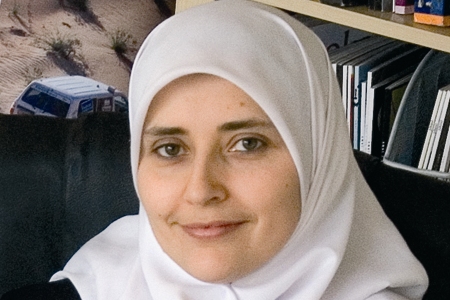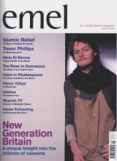
Editorial- The future of our history
Issue 5 May / Jun 2004
A rose. The quintessential emblem of England. It reminds me of the summers of childhood, the pink blooms in my grandmother’s garden always twin planted with lavender. It reminds me of Romeo and Juliet, for “that which we call a rose / By any other name would smell as sweet.” It reminds me of the English civil war, the War of the Roses. It reminds me of rugby and the victorious England team. And whenever I leave these shores the rose is a symbol of England that reminds me of home.
So it was with some surprise that I learnt that the rose is actually not from these shores. It came from Iran, via Syria. But it should not have been a surprise because the name of that most favoured of roses –courted for its scent, colour and bloom – the Damask Rose – gives away the clue to its origins. Yet the rose has become so English. It is the English rose.
This simple fact has impressed me. It appears that which we think of as English often comes from afar and finds its place on these shores to become our own. Christianity also came from the distant climes of the Middle East. William Blake might have wondered “And did those feet in Ancient times / Walk upon England’s mountains green?” But it was from the land of Palestine from where Jesus came. And yet we do not think of Christianity as foreign; it is an integral part of Britain.
The debates rage at the moment about Britishness. What defines us as Britons? Is it knowledge of Shakespeare and Dickens? Is it being Christian? Is it being white? We are questioning the concepts of multi-culturalism, identity, belonging, and we wonder what binds us. We should ask these questions but not become obsessed with them. Cultures change, they evolve. We cannot look for a moment in time and place which is “British”, sealing it and nostalgically clinging on to it. Rather we must realise that being British has evolved and means different things to different people. We cannot have a Macarthy-style witch hunt for loyalty and belonging. It takes at least four generations before being accepted as Cornish. And the Scots? They are Scottish first and foremost; being British comes later.
We must have a sense of history, a feel for the past. I grew up on stories of Doodlebugs – the German bombs whose silence meant they were about to fall on you. I was reared on tales of the Battle of Britain –
where our Air Force kept the Germans at bay. All of this does indeed give me a sense of Britishness. This may seem to exclude those who are new-comers to Britain, but they can learn these stories too, for without these battles Europe and Britain would be a far different place than the one we live in today. We must also know other stories and I have learned them as I have got older. Stories which are not so illustrious; where our motives were not so great. And we must learn those stories too, to make sure that we do not repeat the errors of the past. Taking from the stories of the past we must together build a future. We need to ask ourselves what type of country, indeed, what type of world do we want to live in? Is it one of peace and stability? Is it a world of mutual respect and co-existence? Is it a world where civilisations can strive together for the harmony of all.
Or do we continue along our present path, of never-ending wars, environmental destruction, societal breakdown and the erosion of trust. I choose the former: it is the Islamic way. It shall take effort, struggle. We must aim for a strong Britain, where our people, be they white, black, Asian, Christian, Jew or Muslim, work for a nation that is upstanding and just. I want our youth to be concerned with democracy and citizenship rather than being preoccupied with raves and ‘E’. I want our sink estates to be smashed to the ground and replaced by decent houses where people can build communities. I want our churches to be more bothered by the commercial takeover of Christmas and Easter and the secularisation of our nation, than wondering whether Muslims have condemned enough international events beyond their control. I also want a strong Islamic civilisation in this world again, where Muslims feel empowered by their contribution to this world rather than seeking empowerment in violence.
True harmony is based on the fostering of a confidence and strength that provides room for others to coexist and build together. A strong, confident Britain will be a tolerant Britain because it will not be uneasy with its identity, nor will it feel the need to ally itself to aggression. Likewise, a strong confident Islam will be a force for good, directing its powerful emotions towards construction. It is my sincerest hope that the Muslims of Britain will be foremost in building both.
Bookmark this |
|
Add to DIGG |
|
Add to del.icio.us |
|
Stumble this |
|
Share on Facebook |
|
Share this |
|
Send to a Friend |
|
Link to this |
|
Printer Friendly |
|
Print in plain text |
|


Comments
0 Comments